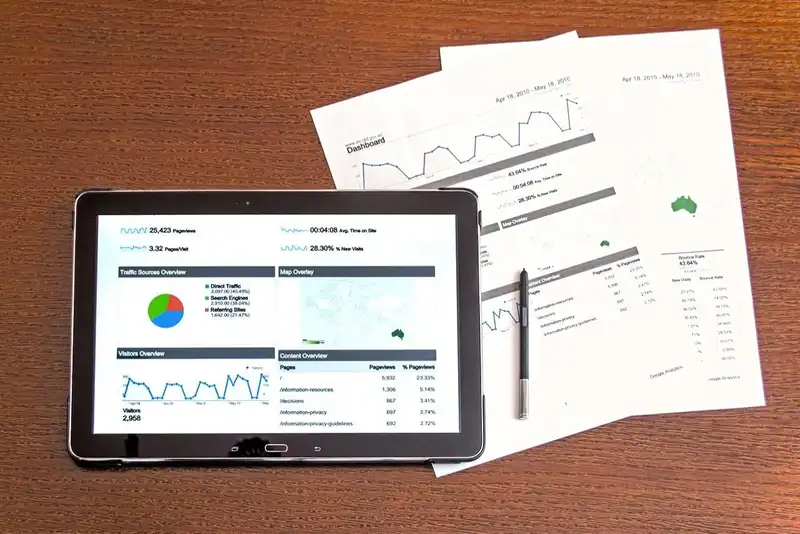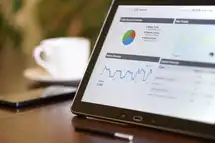What are business intelligence tools?
Business intelligence tools are various software applications that help a company make more informed decisions, gain greater insight into its operations, and operate more efficiently. Let's explore the business intelligence lifecycle and what software tools are involved in every phase.
3 Easy Steps to Help You Find the Right Business Intelligence Tools
What is Business Intelligence Software?
Business intelligence software is a suite of applications and tools that systematically collect large volumes of raw data from the different data sources of your business operations and process it to derive actionable insights. These insights are then converted into easy-to-understand reports that assist business owners and managers with decision-making to optimize their operations.
Business intelligence software strives to make the use of artificial intelligence more accessible and user-friendly to lay people, so that restaurant managers and owners can operate the system themselves. With self service business intelligence tools, businesses no longer need to depend on data analysts or scientists to crunch their numbers. BI software makes the job of understanding and optimizing data a simple process.
How Can Data Analysis Help Your Business?

If you own or manage a restaurant, you're aware of the large volume of data your business generates each day. This data is important. It can tell you a lot about your customers, your sales, your costs and your overall performance. But what you may not realize is that it can also help you improve your bottom-line.
Here's how-
1) Data analysis can help hone your marketing efforts. By analyzing your customer data, you can better understand who your target market is and what they're looking for. This understanding can then be used to create effective marketing campaigns that are more likely to reach your target audience and result in increased sales.
2) Data analysis can help improve your products and enhance project management. By analyzing customer feedback and other data sources, you'll spot where and how your products need improvement. This information can be used to make changes to your menu, your specials, your plate sizes and even your seating arrangement.
3) Data analysis can help streamline your operations. By identifying inefficiencies across functions, it can eliminate waste and increase efficiency. This streamlined approach can boost profitability by helping you save time and money cutting out unnecessary tasks.
4) Data analysis, business intelligence and business analytics tools can also be used for sales and inventory forecasting. This will give you an accurate estimate of your future demand, which will help you prepare better with the right amount of inventory and staff.
It's hard to know what business intelligence tools you need to monitor and analyze your business data.
You're probably feeling overwhelmed with all the different options and features out there.
Examples of Business Intelligence Tools
Business Intelligence tools are software applications that help organizations gather, track and analyze data. There are different types of business intelligence tools available, each designed to perform a specific function. Some common examples include-
- Data warehouses- This is where all the data, be it sales invoices, performance reports, inventory records, purchase records, etc. are stored in a systematic manner. Data warehouses create the foundation for business intelligence software to work on.
- Data mining tools- These tools help organizations sift through large amounts of data to identify patterns like market trends, sales trends and customer behavior patterns.
- Reporting tools- These tools generate reports based on data from various data sources, allowing businesses to track progress and performance over time.
- Predictive analytics- These tools use historical data to make predictions about future events or outcomes, such as sales and inventory forecasts.
- Dashboards and data visualization- These are tools that allow businesses to create easy-to-understand visual representations of the data they collect from the operation, making it easy to spot trends and gain insights.
What BI Tools do Restaurants Commonly Use?
There are different business intelligence or BI tools on the market, but not all of them are equally suited for the restaurant industry. In general, restaurants tend to use BI tools that help them track sales data, analyze customer behavior, optimize marketing efforts and improve their overall operations.
Predictive analytics- This is a subset of data mining and data analysis. Predictive analytics has proved to be an essential tool for restaurant businesses, accurately predicting sales forecasts, inventory usage forecasts and demand and market trends. This tool helps businesses optimize their operations for the future.
Inventory management- Intelligence tools are also used to manage restaurant inventory efficiently and accurately. With BI tools, your inventory usage can be optimized by moving and rotating stocks in a systematic manner that ensures there's no piling up of perishable goods or dead stock. The system will also make sure you place purchase orders only when needed.
Data visualization- Large data stacks are put to better use with dashboards and data visualization methods deployed by business intelligence software. With data visualization, you can read raw data in your natural language to better understand your sales patterns, customer behavior and business operations.
Order management- BI tools such as point of sale software (POS systems) efficiently manage the sales points of a restaurant by seamlessly integrating the counters with the kitchen and inventory. They also take care of online ordering, delivery and payments while maintaining all historical data of sales and order fulfilment for data analysis.
How to Pick the Right BI Tools For Your Restaurant

Choosing the right BI tools for your restaurant can be tough, only because there are so many options to choose from. But with a little bit of research and some help from experts, you can find the perfect fit for your needs. Here are a few tips to get you started-
1. Define your goals. What do you hope to achieve with your BI software? Do you want to increase sales, improve operations, increase your customer base, reduce costs or optimize your performance management? Knowing your objectives will help you narrow down your options.
2. Find out what data you have and what you need. Before you can make any decisions, you need to understand what data is available to you and what kind of insights you need from it to help your restaurant. Work with your IT team for a better understanding of your data sources and the kind of numbers you have stored in your data warehouses.
3. Consider ease of use and implementation. Not all BI tools are created equalsome are more user-friendly than others. Make sure to take ease of use and implementation into account when making your decision. You don't want something that's impossible to set up or that requires hours of training just to use its key features. Analyze how well the data visualization tools work, and how they present your raw data in the form of reports and insights.
4. Evaluate what kind of growth the BI tools can promise you. Look at the past performance of their data analytics tools and note how they have impacted the growth of other restaurants. Get BI software that can make optimal use of Big Data.
The amount and variety of business intelligence tools available is overwhelming.
It’s hard to know where to start.
5 Best BI Software for Restaurants
Zip Forecast-
This business intelligence and forecasting software has been specially designed for restaurants. It can fully integrate with all other restaurant management software systemsincluding inventory management, supply chain management and order management systemspulling in their data and analyzing it expertly. Zip Forecast even offers weather forecasts to help businesses plan in advance and know what kind of sales to expect when the weather turns. It can predict sales and demand in real time, as well as periodically. Zip Forecast is available on the online restaurant app store, Hubworks.
Tableau-
This business intelligence software uses data visualization tools to bring out the best from data warehouses. Tableau can be used to generate visual reports and insights, which can be shared on the cloud. It helps manage data remotely and enables collaboration across teams.
Sisense-
This business intelligence and analytics software helps businesses keep up with market trends and industry insights, and is particularly useful for small and medium-sized establishments. Users can combine data sets from different data sources, get unique dashboards, generate visually appealing reports and share them among team members.
SAP-
This is an all-round business intelligence solution with data visualization and reporting tools that enable sharing. The SAP platform derives valuable insights from your data warehouses and makes these reports easily available to all authorized stakeholders in the company. The BI software offered by SAP is easy to use and promises growth for businesses that use its tools.
Looker-
Looker is a business intelligence platform ideal for businesses that are already using some kind of data analytics tool. Businesses can drill down their data sets and analyze and process them in real time with the help of this software. Looker can take a deep dive into a business's existing data warehouse, extracting relevant information and presenting it in natural language for users to understand.
Final Word
Business intelligence tools have come a long way since their early iterations. Today's business intelligence tools are much more sophisticated and offer a wider range of features and functionalities. However, with so many different options on the market, it can be difficult to know which tool is right for your business.
The best way to find the right business intelligence tool is to consult with an expert who can help you assess your specific requirements. Once you have a clear understanding of what you need, you can narrow down your search to a few select vendors and compare their offerings.
You want to be able to make the right decisions for your business.
You're not sure which business intelligence tools will help you do that.




